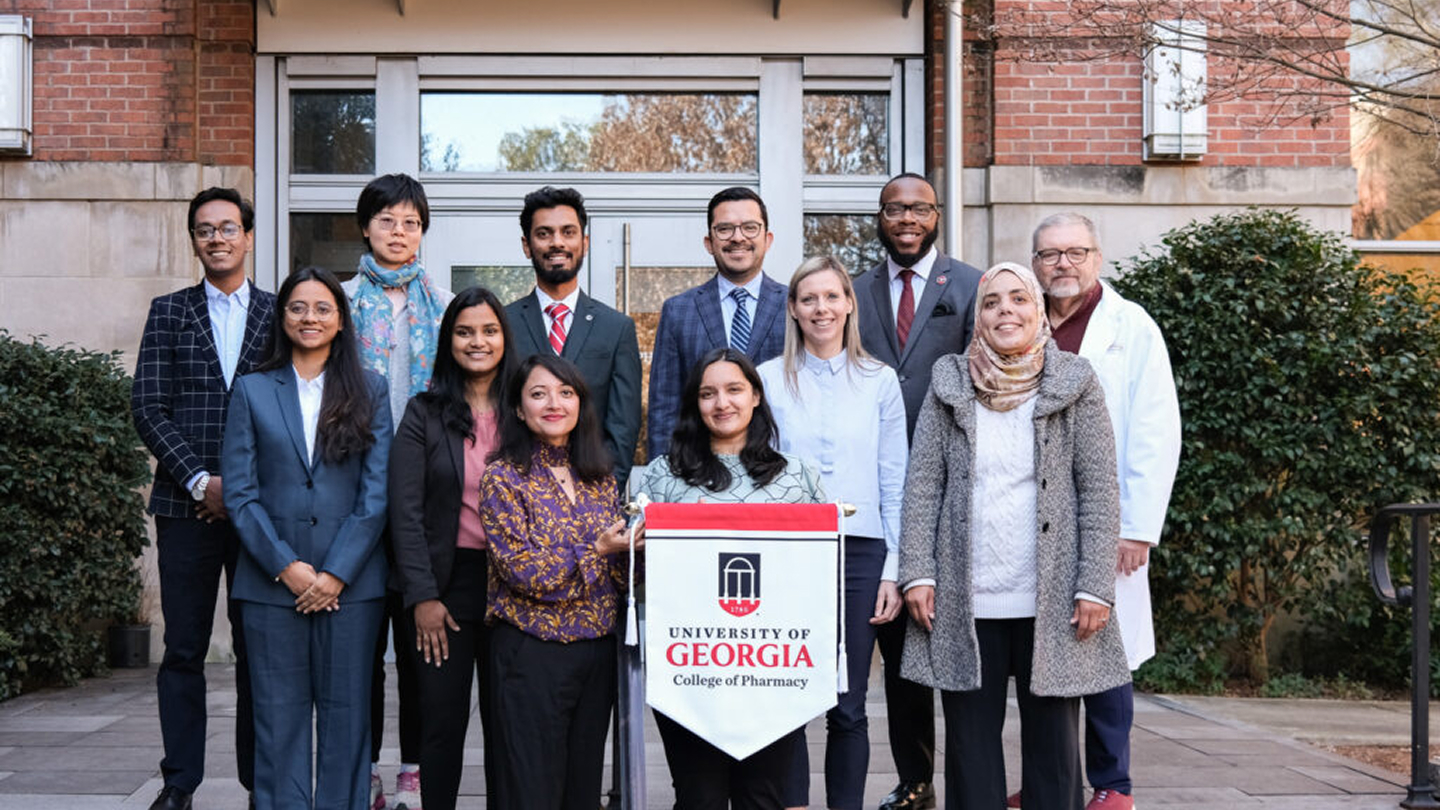From groundbreaking research to national recognition, the College of Pharmacy’s Pharmaceutical Health Services, Outcomes, and Policy program is making waves in healthcare innovation.
UGA’s College of Pharmacy’s Pharmaceutical Health Services, Outcomes, and Policy (PHSOP) graduate program is charting an exciting path forward—one defined by rigorous research, national leadership, and a mission to improve patient care through data-driven insights. Led by Dr. Lorenzo Villa Zapata, Assistant Professor, the program is housed in the Department of Clinical and Administrative Pharmacy.
“In today’s complex healthcare landscape, questions of cost, access, and quality are more pressing than ever,” said Dr. Villa Zapata. “That’s when outcomes and policy research steps in and translates real-world evidence into better decision-making for patients, providers, and policymakers alike.”
For UGA’s PHSOP program, the mission is more than academic; it’s a driving force that positions students and faculty at the forefront of healthcare innovation.
During the past year, PHSOP students and faculty have contributed to publications across leading journals, advancing knowledge in oncology, cardiology, Alzheimer’s disease, and even the role of emerging therapies, such as psilocybin. Their scholarship reaches far beyond the page, with presentations at premier gatherings, such as the American Society of Clinical Oncology (ASCO), the International Society for Pharmacoeconomics and Outcomes Research (ISPOR), and the International Society for Pharmacoepidemiology (ISPE). Topics range from health disparities and real-world safety data to cost-effectiveness and healthcare delivery—areas at the heart of better policy and patient outcomes.
Recognition has quickly followed. In the past year alone, PHSOP students earned national awards and secured fellowships with numerous organizations. At the ISPE conference held in Washington, D.C. in late August, all four of the program’s posters were selected for a highlighted section, showcasing research on cancer therapies, adverse drug events, and treatment outcomes. Doctoral student Pooja Gokhale also received the prestigious Stanley Edlavitch Award for the highest-rated student abstract. “These accomplishments reflect not only the strength of our program, but also the caliber of students we attract,” said Dr. Villa Zapata.
“Mentorship is the backbone of our program,” added Dr. Villa Zapata, who is involved in several of the program’s current research projects. “We see our role as preparing students to be national leaders who will influence how healthcare is delivered and financed.”
That mentorship is one of the program’s defining features. Faculty members guide students not only in technical expertise, such as data analytics, pharmacoeconomics, and policy evaluation, but also in leadership development. Many students hold teaching assistantships, working directly with PharmD candidates to bridge research with practice. Others are active in student organizations, including a revitalized UGA ISPOR Chapter that now hosts professional seminars, networking events, and expanded conference participation.
Along with Dr. Villa Zapata, College of Pharmacy faculty members who serve as mentors and instructors for PHSOP include Drs. Josh Caballero, Niying Li, Smita Rawal, Lilian Sattler, Susan Smith, Randall Tackett, and Henry Young, who also is the head of the Clinical and Administrative Pharmacy Department.
The impact of this work is being noticed. With 30 applications received this year, an increase compared to previous years, the degree program is drawing interest from across the country, a testament to its growing reputation. Prospective students recognize the unique opportunity UGA offers: a supportive environment where world-class research and meaningful policy conversations intersect.
As healthcare systems worldwide grapple with balancing innovation, affordability, and equity, outcomes research has never been more essential. PHSOP graduates are uniquely prepared to contribute—whether by informing pharmaceutical policy, guiding insurers and regulators, or shaping patient-centered care models.
For the College of Pharmacy, the success of PHSOP is both a point of pride and a vision for the future. “Our students aren’t just publishing papers,” Dr. Villa Zapata emphasized. “They’re helping solve the biggest challenges facing healthcare today. That’s what makes this program special.”
From conference podiums to classrooms, from policy papers to patient outcomes, the story of PHSOP is one of momentum. As the program continues to expand, one thing is clear: UGA’s PHSOP community is not only preparing scholars for impactful careers but also helping to lead the national conversation on health policy, economics, and outcomes research.
